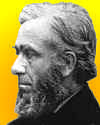
On 14 Sep 1811, William Budd was born, an English physician who followed his father and five of his brothers into the medical profession. From 1841, he practiced in Bristol. At a time before Pasteur's knowledge of microorganisms, Budd recognized that the contagious disease was related to unidentified poisons that multiplied in the intestines and were passed in excretions. In a pamphlet he published, On Malignant Cholera(1849), he warned that disease was transmitted when excretions contaminated drinking water. He was inspired by the similar work of John Snow in London. With a regimen to protect Bristol's water supply from such contamination, in 1866, Budd was able to curb the epidemic spread of cholera. He studied other communicable diseases, including diptheria, scarlet fever, rinderpest and tuberculosis.
Dr. John Snow had also published a pamplet, On the Mode of Communication of Cholera, just a month earlier than Dr. Budd.
Later, a Letter to the Editor by Dr. John Snow, to The Edinburgh Medical Journal was published in the Jan 1856 issue, in which you can read how he compared their ideas.

On 14 Sep 1769, Alexander von Humboldt was born, a naturalist with Einsteinian fame in his era for his daring scientific explorations covering thousands of miles through Latin America that altered the course of science. Simon Bolivar called him the “the true discoverer of South America.” Stephen Jay Gould noted he “may well have been the world’s most famous and influential intellectual.” Humboldt cataloged more than 60,000 plants, set an altitude record climbing the volcano Chimborazo, and became the first to study the great cultures of the Aztecs and Incas. In the process, he revolutionized geology and laid the groundwork for a range of modern sciences including climatology, oceanography, and geography. His work largely inspired Charles Darwin. Today's book pick is: Humboldt's Cosmos: Alexander von Humboldt and the Latin American Journey that Changed the Way We See the World, by Gerard Helferich who pays a dramatic tribute to one of history’s most audacious adventurers. If you feel sad that his name may be only vaguely familiar to you, join the author as he carves a path through the Amazon and the Andes, with the flies and mosquitoes, the crocodiles, piranha and jaguars, as Humboldt and a small but changing group of assistants lug all manner of scientific instrumentation, boxes of botanical samples and provisions over thousands of miles, through uncharted territories and back again.
It is available from Amazon, typically about New from $12.18. Used from $1.25. (As of earlier time of writing - subject to change.)
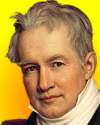 | I shall collect plants and fossils, and with the best of instruments make astronomic observations. Yet this is not the main purpose of my journey. I shall endeavor to find out how nature's forces act upon one another, and in what manner the geographic environment exerts its influence on animals and plants. In short, I must find out about the harmony in nature. |
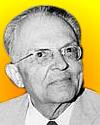 | Logic is the last scientific ingredient of Philosophy; its extraction leaves behind only a confusion of non-scientific, pseudo problems. |
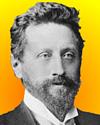 | Professor Ayrton said that we were gradually coming within thinkable distance of the realization of a prophecy he had ventured to make four years before, of a time when, if a person wanted to call to a friend he knew not where, he would call in a very loud electromagnetic voice, heard by him who had the electromagnetic ear, silent to him who had it not. “Where are you?” he would say. A small reply would come, “I am at the bottom of a coalmine, or crossing the Andes, or in the middle of the Atlantic.” Or, perhaps in spite of all the calling, no reply would come, and the person would then know that his friend was dead. Think of what this would mean ... a real communication from a distance based on true physical laws. [His prophecy of cell phones, as a comment on Marconi's paper, 'Syntonic Wireless Telegraphy,' read before the Society of Arts, 15 May 1901, about his early radio signal experiments.] |
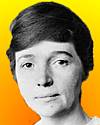 | No despot ever flung forth his legions to die in foreign conquest, no privilege-ruled nation ever erupted across its borders, to lock in death embrace with another, but behind them loomed the driving power of a population too large for its boundaries and its natural resources. |
| Before you look at today's web page, see if you can answer some of these questions about the events that happened on this day. Some of the names are very familiar. Others will likely stump you. Tickle your curiosity with these questions, then check your answers on today's web page. | |
| Births | |
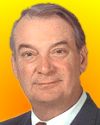 | Ferid Murat, born 14 Sep 1936, was a co-winner of the 1998 Nobel Prize for Physiology or Medicine for discovering that a gas acts as a signalling molecule in the cardiovascular system. This was an entirely new mechanism for how blood vessels in the body relax and widen. What was this gas? |
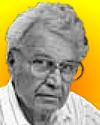 | Robert S. Dietz, born 14 Sep 1914, was an American geophysicist and oceanographer who presented a theory of seafloor spreading in which new crustal material continually upwells from the Earth's depths along the mid-ocean ridges and spreads outward. How much new seafloor is made each year by this spreading? |
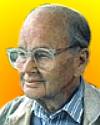 | Born on 14 Sep 1909, the son of an Antarctic explorer, this British Naturalist founded conservation groups. From 1953-1970, he hosted the BBC TV environmental series Look. Can you name this man? |
| Deaths | |
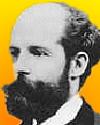 | A French engineer (1839-1882) invented the precursor of the dry cell now providing electrical power for such uses as portable radios. His cell (1866) used a negative zinc terminal, a positive terminal of manganese dioxide in an electrolyte solution of ammonium chloride. It was adopted by the telegraph service of Belgium. Can you name this man? |
| Events | |
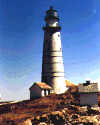 | On 14 Sep 1716, the first lighthouse in America was lit for the first time. It is now the last lighthouse to be manned in the U.S. Which harbour does it mark? |
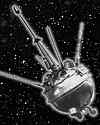 | In 1959, the Soviet Luna 2 became the first world's space probe to strike the moon, when it crashed east of the Sea of Serenity. How much time was taken for its flight from launch to impact? |
Fast answers for the previous newsletter for September 13: Milton Snavely Hershey • for the identification of bacteria • yellow fever, transmitted by the bite of a mosquito • foghorn • rhinoceros • yellow fever.
 If you enjoy this newsletter, the website, or wish to offer encouragement or ideas, please send feedback by using your mail reader Reply button.
If you enjoy this newsletter, the website, or wish to offer encouragement or ideas, please send feedback by using your mail reader Reply button. Your click on a Facebook, StumbleUpon, or other social button on the site webpages is also a welcome sign of appreciation. Thank you for using them.
© This newsletter is copyright 2020 by todayinsci.com. Please respect the Webmaster's wishes and do not put copies online of the Newsletter — or any Today in Science History webpage. (If you already have done so, please remove them. Thank you.) Offline use in education is encouraged such as a printout on a bulletin board, or projected for classroom viewing. Online, descriptive links to our pages are welcomed, as these will provide a reader with the most recent revisions, additions and/or corrections of a webpage. For any other copyright questions, please contact the Webmaster by using your mail reader Reply button.
--
If you do not want to receive any more newsletters, Unsubscribe
To update your preferences and to unsubscribe visit this link
Executive Real Estate Business Class
-
"It was like a man with wings. It wasn't like anything you'd see on TV or in a monster movie." ...
About the publisher
Search This Blog
Blog Archive
-
▼
2020
(1542)
-
▼
September
(173)
- SCIENCE: Just how big is Everest?
- The Latest News from History News Network
- On This Day for September 30 - Munich Agreement si...
- We are called to return to our foundational values...
- Newsletter for Wednesday 30 September.
- They Killed His Wife And Left Him For Dead – Then ...
- TRAVEL: Telling new truths about America’s histori...
- Make learning fun with Nat Geo Kids magazine! Subs...
- On This Day for September 29 - British mandate in ...
- Newsletter for Tuesday 29 September.
- Special Edition: Dinosaurs come to life like never...
- September 29: On This Day in History
- HISTORY: America's most endangered historic sites
- New This Week on History News Network
- On This Day for September 28 - California “discove...
- Newsletter for Monday 28 September.
- September 28: On This Day in History
- FAMILY: What do I tell my kids about wildfires and...
- On This Day for September 27 - Norman Conquest beg...
- Newsletter for Sunday 27 September.
- September 27: The Rosetta Stone, E=mc² and Fear as...
- The Compass: Indonesia
- On This Day for September 26 - First televised U.S...
- Newsletter for Saturday 26 September.
- September 26: Frances Drake's Circumnavigation, th...
- CORONAVIRUS UPDATE: Is this the end of the office?
- PHOTOGRAPHY: They feed us. Now we see them.
- The assassination of Lord Mountbatten | Enola Holm...
- 39,500-Year-Old Cave Bear Discovered Perfectly Pre...
- On This Day for September 25 - Pacific Ocean sight...
- The Roundup Top Ten for September 25, 2020
- Newsletter for Friday 25 September.
- September 25: Battle of Stamford Bridge, Remote Co...
- ANIMALS: These mighty elephants find peace
- On This Day for September 24 - Federal troops sent...
- Newsletter for Thursday 24 September.
- Global cartels taking control of the world + HPA B...
- September 24: Decline of the Byzantine Empire, Ope...
- YOUR WEEKLY ESCAPE: America's oldest mystery
- SCIENCE: How to cope with a big death toll
- The Latest News from History News Network
- On This Day for September 23 - Neptune observed, J...
- Newsletter for Wednesday 23 September.
- September 23: Nintendo, the Start of Data Processi...
- TRAVEL: How will America’s state parks survive?
- Matching gift opportunity for Sumatran rhinos
- On This Day for September 22 - Solidarity formed, ...
- Newsletter for Tuesday 22 September.
- September 22: Salem Witch Trials, Iraq's Invasion ...
- HISTORY: Who can replace RBG?
- Feed their curiosity! Get Nat Geo Kids magazine fo...
- New This Week on History News Network
- On This Day for September 21 - Joseph Smith's visi...
- Newsletter for Monday 21 September.
- September 21: France, China and a Sheep Shearing R...
- FAMILY: Don’t tell your kids outdated stuff about ...
- On This Day for September 20 - Rome incorporated i...
- Pro-life is not Politics + Vickie Travis's message...
- Newsletter for Sunday 20 September.
- September 20: Attila the Hun, Magellan's Circumnav...
- The Compass: Chile
- Matching gift opportunity for Sumatran rhinos
- On This Day for September 19 - George Washington's...
- Newsletter for Saturday 19 September.
- CORONAVIRUS UPDATE: Young people are spreading the...
- September 19: 1st Country to Grant Women the Right...
- PHOTOGRAPHY: How to make dinos look new (CORRECTED)
- Quick Note: How to Save Videos by Downloading
- PHOTOGRAPHY: How to make dinos look new
- The Mayflower | Medieval spiders | Ancient Egypt f...
- When She Found Out Her Boyfriend Was A Serial Kill...
- The Roundup Top Ten from History News Network
- On This Day for September 18 - Mukden seized by Ja...
- Newsletter for Friday 18 September.
- "Truth Crushes Evil" + We're Winding down + What ...
- YOUR WEEKLY ESCAPE: The country that doesn't exist
- September 18: Great Fire of Moscow, the CIA and El...
- ANIMALS: How U.S. officials stopped the flying squ...
- Two New Podcasts From HISTORY
- Don't miss out: back to school savings for learner...
- On This Day for September 17 - Camp David Accords ...
- Newsletter for Thursday 17 September.
- September 17: Bloodiest Day in the American Civil ...
- SCIENCE: He found part of a one-of-a-kind dinosaur
- SPECIAL REPORT: How the West is primed to burn
- The Latest News from History News Network
- On This Day for September 16 - Mayflower's departu...
- Newsletter for Wednesday 16 September.
- September 16: French Abolish Slavery, Malaysia For...
- TRAVEL: Will slowing down help you get stronger?
- Special Report: How do we end this pandemic?
- On This Day for September 15 - Central Americans g...
- Newsletter for Tuesday 15 September.
- September 15: Darwin Reaches the Galapagos, Penici...
- HISTORY: How the U.S. battled catastrophic wildfir...
- BREAKING NEWS: Possible evidence of life found on ...
- Discover Remarkable Leaders With Nat Geo History M...
- On This Day for September 14 - Mexico City capture...
- New This Week on History News Network
- Newsletter for Monday 14 September.
-
▼
September
(173)
-
Blogroll
-
About
HistoryFact










0 comments:
Post a Comment